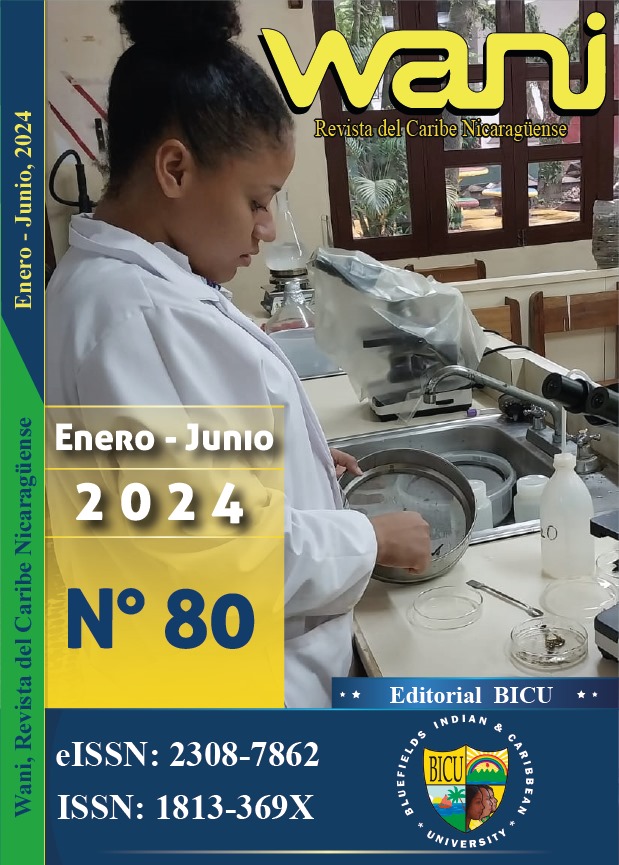Factores para la ecoinnovación en comunidades rurales mexicanas. Análisis de estudios de casos
DOI:
https://doi.org/10.5377/wani.v40i80.17652Palabras clave:
Desarrollo rural, medio ambiente, pobreza, ecoinnovaciónResumen
Algunas corrientes teóricas proponen el estudio de la ecoinnovación como elemento central para lograr el equilibrio ambiental, económico y social. Desde lo local, la ecoinnovación es un factor para la resolución de problemas sociales, económicos y ambientales que mejoran la calidad de vida de las comunidades rurales y propician el desarrollo local. En ese sentido, el objetivo de este trabajo es analizar cuáles son los factores que impulsan la creación de proyectos sustentables innovadores en las comunidades rurales mexicanas, con el fin de enriquecer el concepto de ecoinnovación. La metodología es cualitativa basada en la revisión documental de libros especializados y artículos científicos indexados en diversas bases de datos. En este artículo se estudian cinco casos sustentables e innovadores del sector agrícola en donde se identificaron al menos cinco factores que permiten emprender propuestas ecoinnovadoras, tales como los económicos, sociales, culturales, políticos y legales. Se concluye que los factores anteriores sí abonan al concepto de ecoinnovación, en el sentido de que amplían la concepción del término, haciendo una notable diferencia en comunidades rurales del norte del país, respecto a las del sur. Así la ecoinnovación no es un término genérico que se pueda aplicar de la misma forma a todos los casos, sino que tiene matices que diferencian al concepto de acuerdo con su contexto socioeconómico y los fines de las organizaciones o comunidades.
Descargas
374
Descargas
Publicado
Cómo citar
Número
Sección
Licencia
Derechos de autor 2024 Bluefields Indian and Caribbean University

Esta obra está bajo una licencia internacional Creative Commons Atribución-NoComercial-CompartirIgual 4.0.




